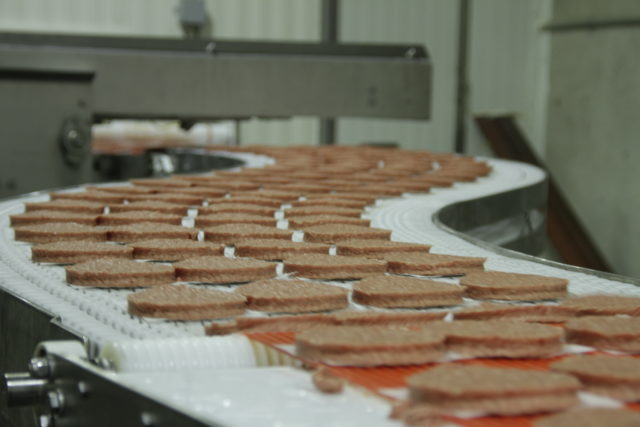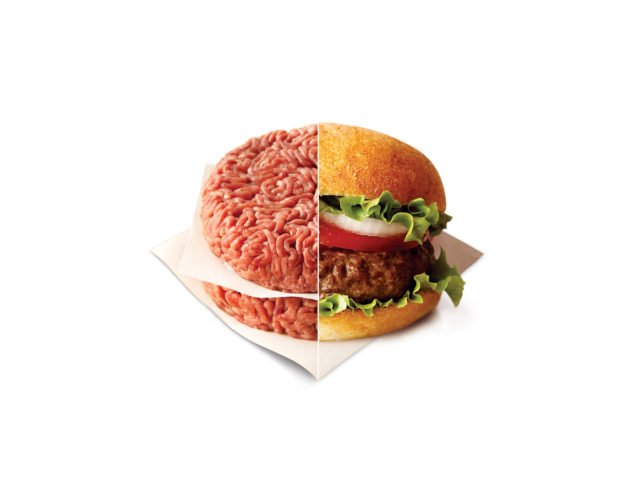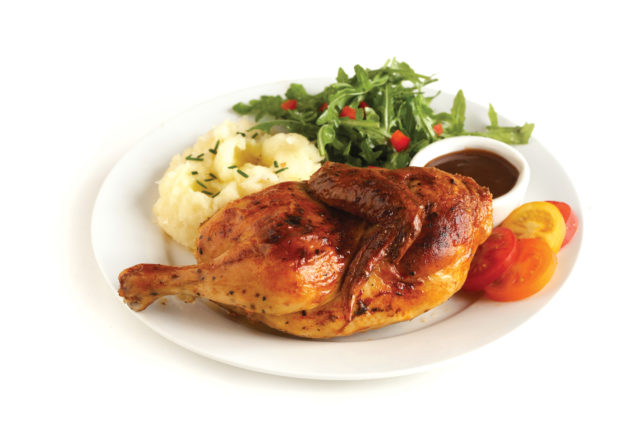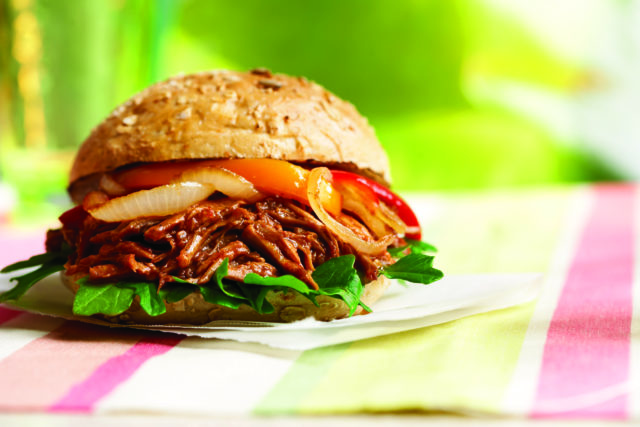-
Headquarters -
155 Hedgedale Road, Brampton, Ontario, L6T 5P3
-
Year established -
1966
-
NAICS -
311614 - Rendering and meat processing from carcasses
-
Major expansions -
1985
-
Employees -
150
-
Exports -
US
-
Download -
Cardinal Meats
Cardinal Meats Specialists creates high quality meat products, ranging from fresh and frozen burger patties to fully-cooked ready-to-eat foods.
“Can you provide a family meal that is easy to prepare without compromising taste or quality? “You can with Cardinal!” That is what Cardinal Meats Specialists Limited (Cardinal) promises to its customers. Founded in 1966, Cardinal is celebrating 50 years in business. However, the roots of this family-owned company can be traced back even further.
In the 1930s, Jack Cator entered the meat industry, selling meats from door to door in Toronto and its neighbouring communities before opening his own chain of butcher shops. Jack passed on his expertise and entrepreneurial spirit to his son, Ralph Cator, who founded Cardinal in 1966. In the 1960s, burgers and ribs were not as popular as they are now; Ralph pioneered the use of premium cuts to make burgers and ribs a central part of the casual dining experience—even partnering with Swiss Chalet to sell ribs.
Today, the business is in the hands of the third generation—Brent Cator, the current president and chief executive officer of Cardinal. Under the leadership of the Cator family, Cardinal has innovated to grow and become a major player in Canada’s meat industry.
Ralph started Cardinal as a meat purveyor for the restaurant trade moving away from the family roots as retail meat merchants. In 1985, Cardinal expanded back into retail as a supplier to grocery and boxed meat stores. The business is now firmly rooted in both foodservice and retail sectors. Canadians can now purchase Cardinal branded products in a variety of grocery stores, including Metro, Food Basics, Longo’s, Giant Tiger, Sobeys, Costco Wholesale and many more. In addition, Cardinal participates in the Private Label Programs for retailers and foodservice operations with a wide variety of meats, including a range of fully cooked, ready-to-eat beef, chicken, and pork products, fresh and frozen beef and pork, and premium beef burgers stuffed with creative family favourites.
“Cardinal’s success is founded on my father’s principle: innovation is the key to remaining competitive, so people should generate innovative ideas, plan for them, and act on them,” says Brent.
Perhaps somewhat surprisingly, Cardinal is the first meat company in Canada to produce veggie burgers on any significant scale. Now, the company is innovating further and applying vegetable-based casing on the sausages.
Food safety is another major focus for the firm. “We were the first in Canada to earn Hazard Analysis and Critical Control Points (HACCP) certification for food safety,” explains Brent. Product differentiation also contributes to Cardinal’s success. Cardinal is the second-largest burger manufacturer in Canada (after McDonald’s), offering up to 150 different styles of burgers.
Cardinal’s innovative practices extend to its improvements in cook processes and cooking technology. Brent looks worldwide for new technologies, and the company invests heavily in advanced technologies, particularly with respect to advances in burger forming and sealed-environment cooking. “Natural Texture Forming® (NTF) is our patented process designed to cook burgers to a safe 160 degrees Fahrenheit without drying them out. NTF has been racking up awards from retail and foodservice customers,” Brent says proudly. In addition, the company’s Advanced Protein Portioning (APP), a high-speed, high-volume line of combined technologies that portions and cooks animal and vegetarian proteins in sealed packages, is taking Cardinal to the next level in culinary excellence.
Cardinal’s products are manufactured in two facilities—one located on Stanfield Road in Mississauga, Ontario, and the other on Hedgedale Road in Brampton, Ontario. The Mississauga facility is dedicated to slow-cooked products like pulled pork, ribs, and beef items, while the Brampton location serves as the company’s headquarters and its research and development centre, as well as a facility for making high-speed cooked products like chicken breasts, sausages, veggie burgers, etc. “Our two locations are where the company has grown, and more importantly, the Toronto area is a great hub for distribution; it is convenient to ship products across Canada and the United States,” Brent notes. Currently, 95 per cent of Cardinal’s products are shipped across Canada, and the remaining 5 per cent are shipped to the United States.
Cardinal employs 150 full-time workers, and up to 250 workers during peak seasons. Seasonal workers are hired through agencies, and must complete Cardinal’s in-house training, which is focused on food safety, personal safety, and computer skills.
“Most of our recruitment efforts are driven by Cardinal’s strong reputation and word of mouth,” says Brent.
Brent praises the federal government’s Scientific Research and Experimental Development Tax Incentive (SR&ED) program as a vehicle to promote and support companies who are innovating in Canada. In addition to the SR&ED program, Cardinal benefits from Ontario’s interest-free loans program. At the same time, Brent wishes the government would improve public transportation (including awareness, methods, and bus routes) for the convenience of Cardinal’s manufacturing employees. Further, he feels that providing translation or language support for international employees and new immigrants is crucial: “Cardinal’s employees speak up to 30 different languages, and the company invests a lot on language training for its employees. That extra cost is shifted onto companies who have to do the language training themselves in order to make it a safer working environment and increase the skills of their employees . . . it also makes [the employees] easier to employ later on.”
With 180 million annual sales and 15 per cent compound growth rate, Cardinal seems well positioned to carry on its growth momentum through continued focus on food safety, product differentiation, and process innovation. Through its dedication to satisfying customers’ needs, the company has succeeded in becoming not only a family business, but a role model for Canadian manufacturers in general.
For more information about Cardinal Meats, visit their website.
Published: October 13, 2016

Blyth Farm Cheese
Blyth Farm Cheese is a high-quality Dutch-style cheese maker, producing various styles of sheep and goat cheese.

G.S. Dunn
G.S. Dunn is the world’s largest dry mustard miller, distributing to over fifty countries across six continents.
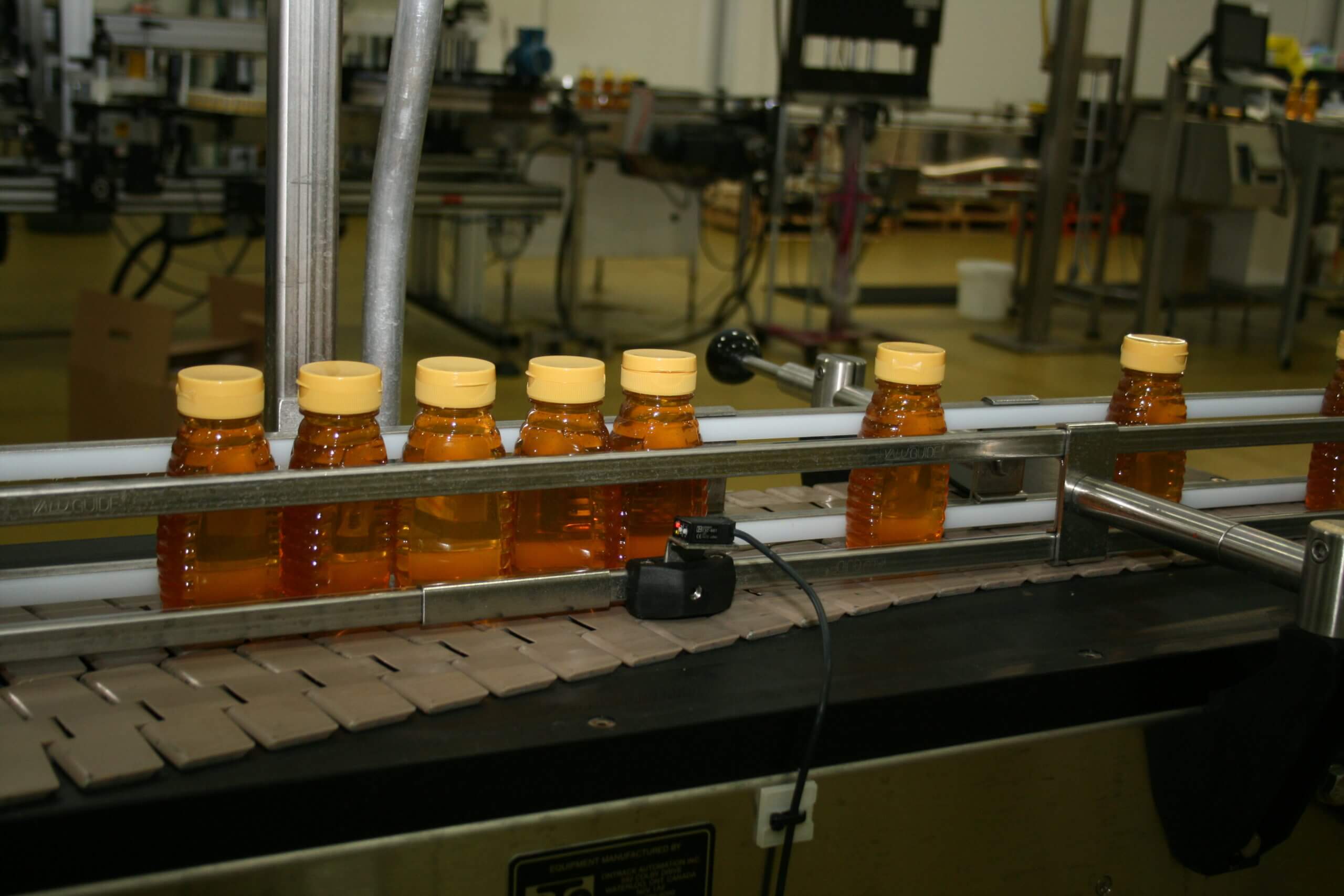
McCormick Canada Inc.
McCormick Canada Inc. is Canada’s largest food-favouring manufacturer. It is a successful leader in the spice, seasoning, flavouring, and specialty food industry, with its head office in London, Ontario. It has manufacturing, sales and distribution centres in Toronto and London.

TWI Foods
TWI Foods is a manufacturer of high-quality specialty food items such as cake-rusks, cookies, cakes & frozen food items. It caters to the South Asian ethnic populations in Canada and worldwide.
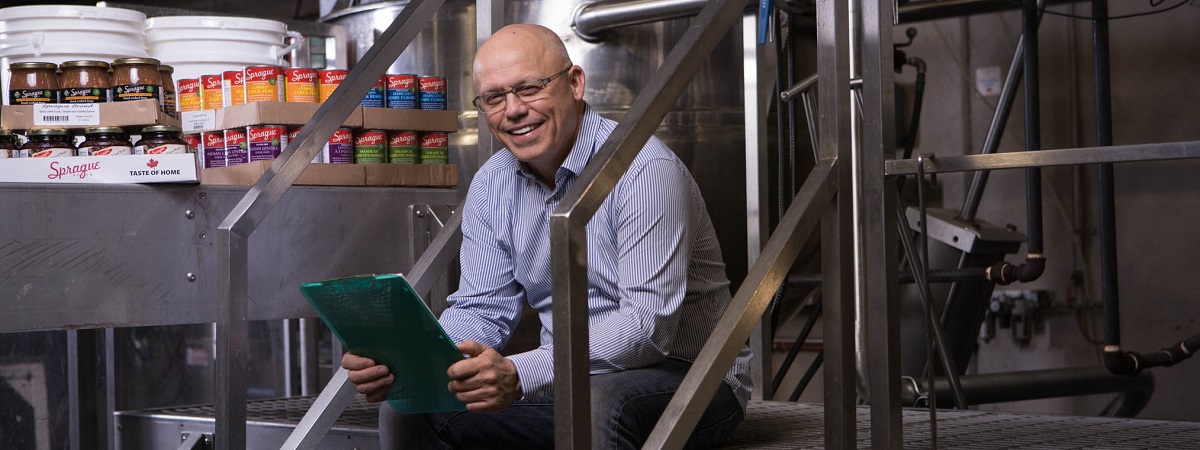
Sprague Foods
Sprague Foods Ltd. is a canned and jarred food manufacturer located in Belleville, Ontario. It manufacturers food for private label consumers, as well as under its own brand name: Sprague Foods. Some of its most popular products include soups made from beans and lentils, rice pudding, and gourmet tomato sauces. Its highly-automated 33,000 square-foot facility frequently fulfills food safety standards implemented by the Food and Drug Administration (FDA) and the Canadian Food Inspection Agency (CFIA). The president of the company is Rick Sprague, the fourth generation of the Sprague family to be involved in the business, which began in 1925.

